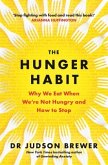Are scientific 'facts' about body image enough to define conceptions of normality?
Reassessing Experimental Psychology from a critical perspective, Sylvia Blood demonstrates how its research into Body Image can be misused and prone to misuse. Classifying women who experience distress and anxiety with food, eating and body size as suffering 'body image disturbance' or 'body image dissatisfaction', it can reproduce dominant assumptions about language, meaning and subjectivity. Experimental psychology's discourse about body image has recently become more widely influential, becoming popularised through domains such as women's magazines, in which psychological experts provide 'facts' about women's 'body image problems', and offer advice and psychological treatments.
With acute cross-disciplinary awareness Body Work: The Social Construction of Women's Body Image exposes the assumptions at work in the methods and status of experimental approaches. Penetrating beyond the usual dichotomy between experimental and popular psychology, this book illuminates some of the ways in which women's magazines have embraced experimental psychology's treatment of the issue. Drawing on her experience in Clinical Psychology, Sylvia Blood highlights the damaging effects of uncritically experimental views of body image. She goes on to elaborate not only an alternative model of discursive construction but also the implications of such a theory for clinical practice.
Merging theory and clinical experience, Sylvia Blood exposes the fallacies about women's bodies that underpin experimental psychology's body image research. She demonstrates the dangerous consequences of these fallacies being accepted as truths in popular texts and in the talk of 'everyday' women.
Hinweis: Dieser Artikel kann nur an eine deutsche Lieferadresse ausgeliefert werden.
Reassessing Experimental Psychology from a critical perspective, Sylvia Blood demonstrates how its research into Body Image can be misused and prone to misuse. Classifying women who experience distress and anxiety with food, eating and body size as suffering 'body image disturbance' or 'body image dissatisfaction', it can reproduce dominant assumptions about language, meaning and subjectivity. Experimental psychology's discourse about body image has recently become more widely influential, becoming popularised through domains such as women's magazines, in which psychological experts provide 'facts' about women's 'body image problems', and offer advice and psychological treatments.
With acute cross-disciplinary awareness Body Work: The Social Construction of Women's Body Image exposes the assumptions at work in the methods and status of experimental approaches. Penetrating beyond the usual dichotomy between experimental and popular psychology, this book illuminates some of the ways in which women's magazines have embraced experimental psychology's treatment of the issue. Drawing on her experience in Clinical Psychology, Sylvia Blood highlights the damaging effects of uncritically experimental views of body image. She goes on to elaborate not only an alternative model of discursive construction but also the implications of such a theory for clinical practice.
Merging theory and clinical experience, Sylvia Blood exposes the fallacies about women's bodies that underpin experimental psychology's body image research. She demonstrates the dangerous consequences of these fallacies being accepted as truths in popular texts and in the talk of 'everyday' women.
Hinweis: Dieser Artikel kann nur an eine deutsche Lieferadresse ausgeliefert werden.
'Effectively illustrates how the assumptions we make about body image from an individualistic Western research perspective may not actually be helpful to women with body-image problems. Moreover, [Blood] offers an alternative perspective that does justice to the complexity of women's feelings about their bodies. ... I plan on using this text as the basis for a panel discussion in a university setting on women's body image, and I anticipate it will generate interesting intellectual dialogue across several disciplines and perspectives.' - Christy Barongan, in PsycCRITIQUES, March 2006.








